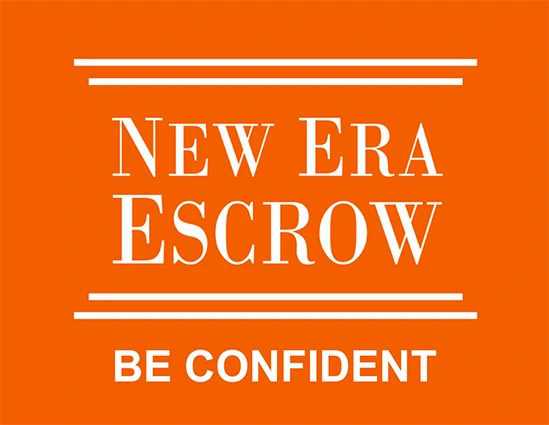
Table of Contents
ToggleHow To Go From Any Career To Escrow
So you’ve taken up an interest in escrow; you want to safeguard real estate transactions and contracts. The only problem? You didn’t major in business, you have no experience, and you don’t know how to make the transition to the escrow industry.
The good news is that escrow is open to individuals seeking a career change. Customer service, problem-solving, and attention to detail are crucial skills in escrow careers. Leveraging those skills and available resources can make the shift to escrow more possible than you imagined.
1. Network with professionals
You’ve probably already researched the job and what it entails. Take it a step further by reaching out to escrow officers and financial professionals to get first-hand information. Their insights into the industry, workplace, and other factors will help you determine if you’re ready to pursue escrow careers.
You can connect with industry professionals online and at networking events. Aside from escrow officers, consult with real estate agents and other professionals to gain diverse perspectives on the field. In the long run, this can also open you up to potential clients, contacts, and resources.
2. Read up on everything real estate and finance
During a career change, it’s important to be knowledgeable about both your prospective job and the industry. Read up on all the changes and trends in real estate and escrow transactions to help you prepare for interviews.
Numerous free resources are available, including blogs, articles, and online videos created by professionals. Learn about topics like smart escrow and other factors influencing real estate today that can help you once you transition to the escrow industry.
3. Take up business or real estate classes
No formal education in business? Some entry-level jobs only require a high school diploma or equivalent. For these jobs, you can highlight your past experiences and skills instead. However, other escrow careers require a bachelor’s or associate’s degree in any business-related course.
If you don’t have a degree related to business, you can fill that gap by taking classes. The American Escrow Association (AEA) provides escrow officer education and certification upon completion. You can also look into online or community college courses in real estate, accounting, or finance.
4. Highlight and develop transferable skills
Escrow involves many skills that aren’t exclusive to business careers. Did you often talk to customers and clients at your previous job? Maybe you’ve had to solve unexpected issues.
If you’ve mastered customer service, negotiation, or mathematical skills in another job, you can highlight this in your resume. It would also be helpful to learn the applications that escrow agents use, such as Excel and other Microsoft Office tools.
Put these transferable skills on your resume:
- Sales and negotiation
- Customer service
- Attention to detail
- Mathematics
- Problem-solving
- Written and verbal communication
- Administrative/clerical experience
5. Gain relevant experience
Applying for entry-level real estate jobs can help you get your foot in the door. For instance, you can become an escrow assistant who works under the team of an escrow officer and provides administrative support for transactions.
If you’re taking a bigger career change and have little background in finance and business, you can take up related roles first. Working as a receptionist, customer representative, or clerk at a small escrow firm can eventually lead to a career change in escrow if you meet people who recognize your work and are open to helping your career growth.
6. Be thorough and proactive
Building a career in escrow does not stop once you become an escrow officer or assistant. Escrow officers handle large transactions, and there are high stakes involved if any mistakes are made. Whether it’s a small task of filing a document, reviewing instructions, or collecting contracts, do it diligently. Sustain your career by handling each transaction with care and attention.
As you gain more experience, applying for an escrow license becomes helpful. These generally require a test and work experience, but they vary depending on the area. While it’s not required in all states, having this certification can be beneficial if you plan to continue advancing in escrow careers.
Are you ready to elevate the escrow industry? Join New Era Escrow and help us redefine what it means to deliver exceptional service.
If you’re passionate about simplifying transactions and supporting real estate success, we’d love to have you on our team! For more information, contact us at terrica.banks@neweraescrow.com. Let’s work together to keep your clients informed and satisfied!
Key Takeaways
- If you want to transition to the escrow industry, it’s important to network with professionals and learn everything you can about the industry to fully understand the job.
- Taking up classes and entry-level or related positions can be the starting point of your career change to escrow.
- After you’ve gotten a job as an escrow assistant or officer, handle every transaction diligently to ensure that clients are cared for, and you can continue to sustain and grow in your escrow career.
References
- Career Guide: How to Become an Escrow Assistant. (n.d.). Workway. https://www.workway.com/2022/04/27/how-to-become-an-escrow-assistant/
- Escrow Assistants: How to Become One. (n.d.). Franklin University. https://www.franklin.edu/career-guide/loan-officers/how-to-become-escrow-assistants
- How to Network as a Real Estate Agent. (2024, June 25). PNC Bank. https://www.pnc.com/insights/personal-finance/borrow/how-to-network-as-real-estate-agent.html.
- Juma, A. (2025, June 9). How To Become an Escrow Officer in 8 Steps (Plus Salary). Indeed. https://www.indeed.com/career-advice/finding-a-job/how-to-become-escrow-officer.
- Learn More About Being an Escrow Officer. (2025, March 26). Indeed. https://www.indeed.com/career-advice/finding-a-job/escrow-officers?utm_source=chatgpt.com
Share this article in :
